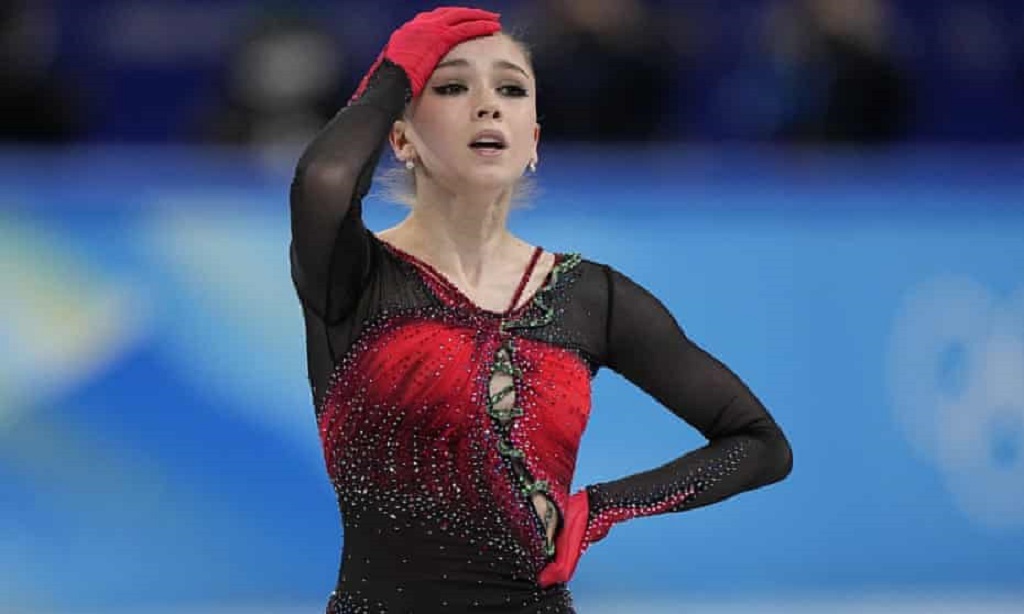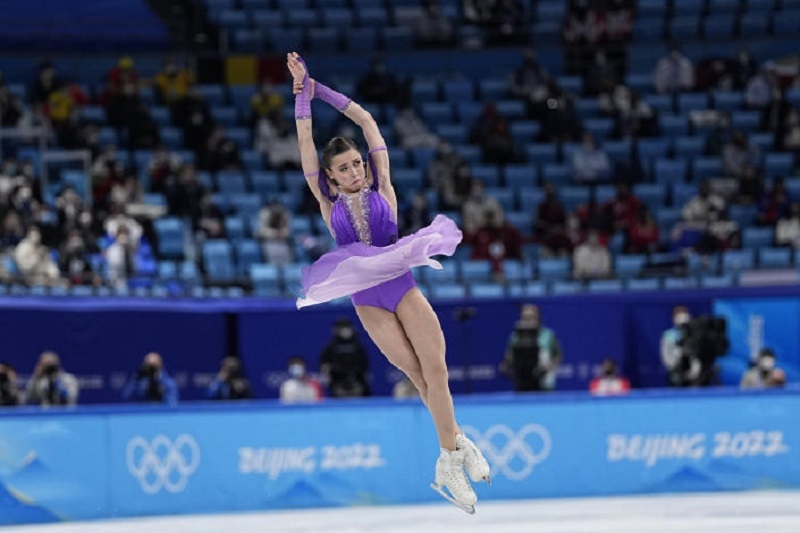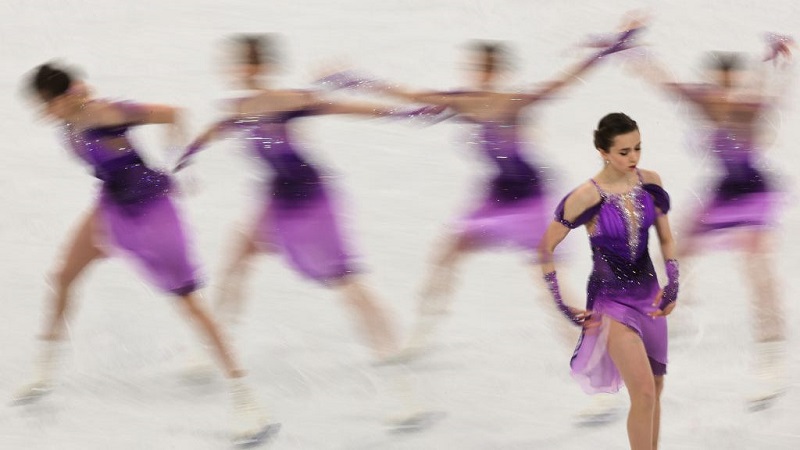
Kamila Valieva, a Russian figure skater, has been tested positive for a prohibited Olympic Doping Rules according to Russian media reports. She was important for the team that won the figure skating team event on Monday. However, their medal ceremony was postponed for unexplained “lawful reasons”.
IOC representative Mark Adams said a “legal case” was in progress concerning the medal ceremony, so he could not comment on the reports.
Here is About the Event Description Until this Point
Kamila Valieva
Kamila Valieva, a 15-year-old Russian Olympic skater has been tested positive for a banned drug according to Russian media reports.
The Russians won the gold medal in the team competition with the United States taking silver and Japan bronze. However, the event didn’t occur as arranged as it seemed to be deferred for unexplained legitimate reasons.
What is Trimetazidine?
Russian media investigated Wednesday (February 9) that Valieva had returned a positive test for a drug named Trimetazidine, which is regularly used to treat angina.
Trimetazidine, or TMZ, works by expanding blood flow to the heart and restricting quick swings in circulatory strain. It has been on WADA’s list of banned stuff since 2014.
According to the US Anti-Doping Agency, TMZ can be utilized by athletes to work on their performance, particularly in endurance sports.
Valieva at the Training Session

The alegged positive test result could charge Russia the team gold. It likewise compromises Valieva’s interest in the singular event that beginnings on Tuesday.
In the meantime, Valieva snickered with her mentors yet turned serious for her daily schedule as she practised on Thursday (February 10).
IOC won’t Comment
In a news conference on Thursday (February 10), IOC over and again wouldn’t respond to questions, referring to worries about the legitimate cycle.
IOC representative Mark Adams requested persistence and understanding from other Olympic skaters as the legal case unfolded.
He said Olympics authorities would fill in as fast as conceivable to sort out the medal ceremony.
“We understand the athletes included need a good result,” Adams said.
History of Russia Olympic Doping Rules
After the Court of Arbitration for Sport (CAS) observed that Russia had not been consistent with hostile to doping rules and guidelines, it restricted the country from contending in worldwide games.
Competitors from Russia compete as non-partisan competitors or “Olympic Athletes from Russia” (OAR), despite penalties that prohibit Russia from competing until December 2022, and report to the Russian Olympic Committee ( ROC) to speak.
Russia was seen as a legitimate fault for mass doping during the 2014 Sochi Winter Games. The original punishment was for a considerable length of time forced by the World Anti-Doping Agency (WADA) in 2020. Notwithstanding, the boycott was decreased to two years by the CAS.

“The most recent Russian doping scandal in Beijing is actually why we passed the Rodchenkov Anti-Doping Act. Doping is debasement,” said Sen Ben Cardin, D-Maryland, who is engaged with hostile to doping issues.
Walden addresses the bill’s namesake, Grigory Rodchenkov, the Russian lab director who called out the complicated, boundless Russian doping plan intended to assist the country with winning awards at the Sochi 2014 Winter Olympics and somewhere else. Rodchenkov currently lives in hiding.
Why the Bill was Presented?
The Rodchenkov Act wasn’t intended to go after competitors.
It targets doctors, coaches and other members from a competitor’s company who are blamed for organizing doping programs at any event that includes US athletes, sponsors or broadcasters.
The bill, upheld by Walden, the US Anti-Doping Agency and others, passed by consistent assent through both places of Congress and was endorsed into regulation in December 2020. It was viewed as an astounding accomplishment thinking about the polarization in US legislative issues.
Authorities at the White House drug control office in both the Trump and Biden organizations have been disparaging of the worldwide enemy of doping controllers. They took steps to keep subsidizing from the World Anti-Doping Agency however lately paid their leftover contribution notwithstanding a few central issues.
The law’s first test came last month when government authorities charged a specialist of giving drugs to an ‘Athlete A’, who the Associated Press distinguished as Nigerian runner Blessing Okagbare.
The IOC and WADA campaigned against parts of the bill. Their fundamental contention was that it gave US regulation authorization a lot of influence in policing against doping cases that happen outside its lines.
This case including Valieva – a Russian who was found to have doped on December 25 at a public title – appears, at first glance, to fit that profile.
There’s no good reason why her test results will take a month and a half to come out. She was allowed to compete in the Olympics, which turned it into an international event.
WADA said in a proclamation that it was “disheartened by the decision” and that it, as well, would “investigate” Valieva’s help staff. Russia’s anti-doping agency has additionally started an examination.
Yet, critics contend the case including Valieva probably won’t have ejected had the nation – whose competitors compete in Beijing under the pennant of ‘Russian Olympic Committee’ because of the sanctions – been punished properly.
